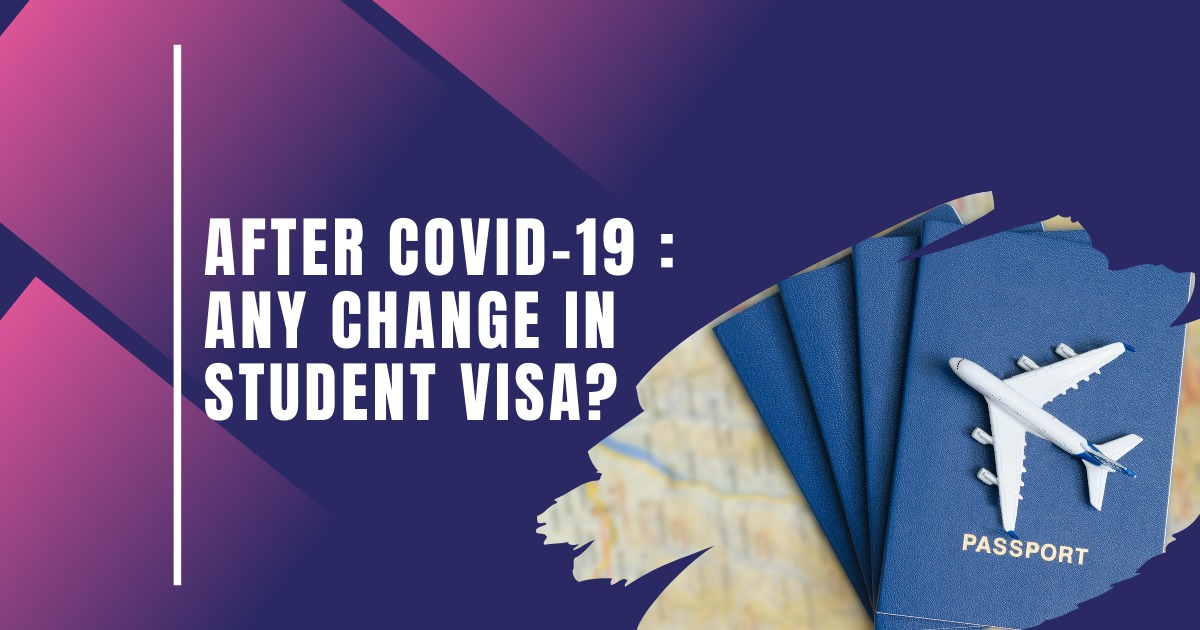
Study in Canada
From being one of the most preferred destinations to study abroad, Canada is among the top 5 countries which are known for its education. For the same reason, “study in Canada” has become a go-to option among students from across the world.
This blog is a simple guide for students who dream to study in Canada. This blog has been written to resolve the confusion of the students related to their dream of studying in Canada and provide them with every possible way which makes this an easy process.
Why choose Canada?
As mentioned previously in the blog, Canada ranks among the top 5 countries which are known for their education system. The country provides a high standard of education to students from across the globe and for the same reason the rate of migration on student visas into Canada is increasing every year.
Another important reason to study in Canada is the opportunity provided to students to earn while they are pursuing their studies. Students can work part-time 20 hours per week during their ongoing sessions and can work full-time during off sessions. This makes students independent and able to pay their expenses in Canada.
Ever wondered why Canada comes among one of the most preferred countries to study abroad?
There is always something to making a particular thing the best. In Canada, the faculty is one of the major reasons to make the universities of Canada, are the best. Extremely skilled and highly experienced teaching staff focuses on knowledge enhancement of the students, not only theoretical but also practical for which students are assigned different projects, assignments, and more.
In Canada, the education system of the country majorly focuses on research with the help of case studies, newsletters, analyzing data, etc, which is also a part of enhancing the practical skills of the students.
Being an attraction to students from across the globe, In the top universities of Canada, students from different regions share a roof under the same campus. This makes students interact with each other and with several brilliant brains. Along with this students get opportunities to gain and share different ideas and knowledge.
Some interesting facts about Canada
- The highest number of students who come to Canada are from India. Indian contributes to 34% of total enrolled students in the universities of Canada.
- In the last decade, Canada has provided approximately 2 million jobs.
- The workforce of Canada majorly has foreigners/immigrants from abroad.
- Once they completion of post-graduation students can apply for the Post Graduate Work Permit Program (PGWPP), students get an opportunity to apply for a work permit under this program.
- After English and French, in 2016, it was announced that Punjabi will also be the official language of Canada.
- Canada is a country with 2 national sports which are: Ice hockey in the winter and Lacrosse in the summer.
- Quebec, a city in Canada is the only walled city in the whole of North America.
- The cost of living in Canada is comparatively low to several developed countries such as the UK, Netherlands, France, etc.
Being of an international standard, students get exposed to different national and international opportunities through academics. Further, students have high placement opportunities.
Intakes in Canada
Canada takes students 3 times a year-
Fall- This is one of the popular intakes among Indian students which is done in September.
Winter- In case a student has missed an opportunity to take admission in September he/she can apply for the winter intakes in January.
Summer- For students who missed both of their chances to be admitted to the top universities of Canada can apply for the summer intakes in April.
These are the popular famous intakes in the Top universities in Canada. However, to qualify for the top universities in Canada students need to qualify for the academic exams.
Exams required to study in Canada-
- Graduate Management Admission Test (GMAT)
- Graduate Record Examinations (GRE)
- Law School Admission Test (LSAT)
- Scholastic Assessment Test (SAT)
- Medical College Admission Test (MCAT)
Above mentioned are the specific exams that are commonly required to qualify for admission into the top universities in Canada. Also, there can be some other requirements asked to be fulfilled by the students which can depend and differ based on the policies of the universities. Now, let’s know how a student should apply to study in Canada.
5 steps to study in Canada
- Find the most suitable university for your course from among the top universities in Canada.
- Make your budget and find out the way to pay for your studies in Canada.
- Apply to the chosen educational institution, and get yourself registered.
- Once all the prerequisites are done, a student can apply to study in Canada and for a visa.
- With all the valid documents required in Canada, the applicant is prepared to fly to Canada with his/her bags.
Difference between study permit and study visa
One of the common doubts seen among the students who dream to study abroad is the confusion between a study visa and a study permit.
A study permit is a document that allows a student to stay and study in a country. In contrast, a Study visa is an authorization that allows a student to enter a country.
Now, students can expedite their process for their study permit with the help of SDS.
What is SDS?
SDS stands for Student Direct Stream (SDS) which is designed to expedite applications for study permits from 14 countries among which India is one. Hence it's a boon for Indian students. Immigration Refugee and Citizenship Canada (IRCC) will aim to process applications of individuals applying through this program within 20 days.
By resolving this confusion let’s move to resolve the next important point which is generally a matter of discussion among students which is about the courses to study in Canada.
Top courses to study in Canada
- Computer Science
- Business
- Engineering
- Health Sciences
- Physiotherapy
- Information technology
- Animation and Gaming
- Hospitality
These courses are highly pursued in Canada and provide high-package opportunities to the students. Keep reading to know about the scopes in some of the top courses available in Canada.
Scope of the top courses in Canada-
Management
- Chief Marketing
- Operations Manager
- Business Manager
- Accounts Manager
- HR Specialist
- Accountant, etc.
Engineering courses
- Government sector engineer
- Project Manager
- Structural engineer
- Engineering Inspector/Regulatory Officer
- Mining engineer
- Software engineer, etc.
Computer-specific courses
- IT Analyst
- Security Analyst and Architect
- Data Science Specialist
- Network Engineer
- Business Systems Analyst
- Software developer, etc.
Medical courses
- Medical Administrator
- General Practitioner
- Psychologist
- Dermatologist
- Occupational therapist
- Anesthesiologist, etc.
Cost of studying in Canada
The universities in Canada provide courses at affordable prices and the education provided is also worth the cost invested to obtain an education in Canada. However, a student can expect an average tuition fee for different courses that can start from 20,000$ per year. This is just the tuition fee the daily expenses of a student can differ from person to person.
Education in Canada becomes more affordable for students as in Canada students can go to college and work part-time as well as full-time depending on the session and schedule of the classes the student. For more, the government has also provided several scholarships for students.
Scholarships to study in Canada-
However, there are numerous opportunities to make your studies affordable in Canada. As mentioned above, students can earn while learning. With this students can make their education manageable. Apart from this, students can easily apply for government scholarships to study in Canada for Indian students. They are-
- Banting Postdoctoral fellowship
- Vanier Graduate Scholarship
- Shastri Research Student fellowship
- Canadian Commonwealth Scholarship and fellowship plan
- IDRC research awards
- Ontario Graduate Scholarship
- Quebec Provincial Government Scholarship
Above mentioned are some of the popular scholarship programs with the help of which students can avail themselves, of a good discount on the cost of study in Canada for Indian students or students from across the globe. Also, some universities in Canada host financial aid for the students which is mentioned further in the blog.
Universities that host financial aid
- Dalhousie University
- Carleton University
- the University of Winnipeg
- the University of Victoria
- University of Manitoba
Students must have gone through a common term i.e, top universities or colleges in Canada. To give a clear view to the students about the same we have mentioned some of them in the blog ahead.
Eligibility Criteria for admission into the universities of Canada-
For UG Courses
- A minimum of 65% should be scored by a student in his/her senior secondary school. In case of below 65% a student can apply for a diploma or foundation course.
- Minimum of 6.0 or 6.5 above IELTS Bands.
- In most cases, different universities can ask for an entrance exam or eligibility test for the university.
- If there is any gap year, it should be justified on paper.
- Only Students with Letters of Recommendation (LOR) are acceptable.
- A Statement of Purpose (SOP) is also a part of the eligibility criteria which is a must.
For PG courses
- A student applying for a PG course has to submit proof of graduation from a well-recognized university.
- An IELTS score of a minimum of 6.0 or 6.5 above is required for admission into the universities of Canada.
- There is no restriction on the gap taken by a student after the completion of undergraduate courses, however, it should be justified in the papers.
- Only students with Letters of Recommendation (LOR) are acceptable.
- A Statement of Purpose (SOP) is also a part of the eligibility criteria which is a must.
Top educational institutions in Canada
- Conestoga College
- Crandall University
- Seneca College
- Georgian College
- Lambton College
- Royal Roads University
FAQs (Frequently Asked Questions)-
- How is the weather in Canada for students?
Canada has a combination of weather. For 6 months the country stays cold and for the rest 6 months the country remain warm. The country is good in case of weather and it is manageable for students to live in.
- What cuisines are available in Canada?
Being a place of multiculturalism, Canada has cuisines from different countries. Vegetarian food and non-vegetarian food are easily available for everyone. Also, there are vague choices available in the same.
- Can a student study in Canada without IELTS?
No! IELTS is a language exam that is necessary to be qualified as a student who is planning to study in Canada. Based on the IELTS score, a student is accepted or rejected by the country.
- Is Canada a safe country for students from abroad?
Canada is absolutely a safe country for students. For the students who migrate to Canada on study visas, the government of the country ensures the safety of those students also, in case of any help students are also provided support from the Indian embassy as well as the Canadian embassy.
- Are there any particular requirements to qualify for a study permit in Canada?
There are no particular requirements to qualify for a study permit however the applicant should follow the below-mentioned points to satisfy the officer-
- The officer should be satisfied with the candidate that he/she will leave Canada once the studies are over.
- Acceptance letter by the Canadian educational institution to which the applicant has applied
- Satisfy with your financial status of yours, that the applicant has sufficient funds to stay in Canada till the time of his course completion.
- The applicant will remain law abiding citizen
- The applicant won't be a threat to the security of Canada.
Once with this, an applicant has convinced the officer, it is easy to obtain the study permit.
- Is it a must to have experience before applying for a master's degree in Canada?
No! It is not necessary to have experience before applying for a master’s degree in Canada. However, it is suggested that before applying to a university in Canada for a master's course, check the policies and requirements for the same.


.png)
.png)
.png)
.png)
.png)


.png)
.png)

